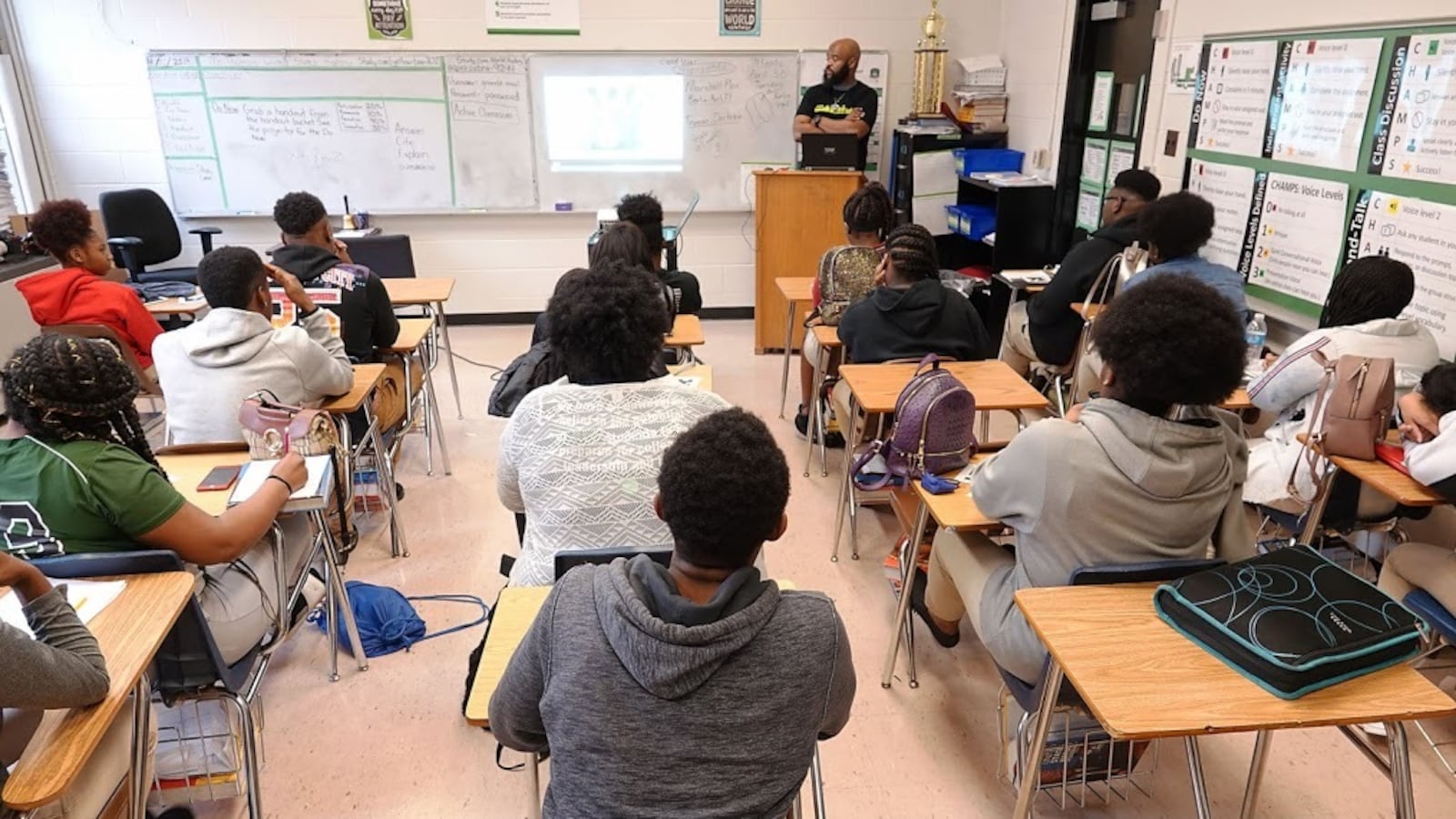It is time to address a harsh reality that most prefer not to discuss: More than a century and a half after slavery was abolished, the dehumanization of Black children continues in classrooms across the country.
It isn’t only the low expectations, stereotypes, and adultification of Black youth that undermines their physical, emotional, and academic well-being. A vast empathy divide also threatens their lives.
White children are generally treated with more trust, compassion, and lighter discipline. Black children typically face harsh discipline, surveillance, and aggressive enforcement cast as “tough love.”
This empathy deficit isn’t only levied by white teachers who through implicit and explicit bias believe Black children need an aggressive hand. Black teachers sometimes admonish their students of color more harshly as a means of teaching them to survive, the result of hard-won lessons passed down for centuries.
We have seen this reality over and over again, both as longtime social workers and educators and in our own lives. But what we’ve come to believe is that Black children don’t need “toughness.” Life is already tough for many of them. They need an abundance of love that is propped up with empathy and compassion.
Dr. Barbara Milton: Making sure I was successful in the white dominant culture was a job my mother and grandmother took seriously and with the best intentions when I was growing up. At the first sign of tears, I was rebuked: Don’t cry! Tears show weakness! You can’t be weak in a white world!
Another admonishment: Never look white people in the eyes. It’s too risky and could unleash trouble. And no matter how hard I worked, I heard: Don’t be lazy! Black people have to work twice as hard! Show them you are up for any task!
They thought this tough love would provide me with the armor needed to withstand and plow through the abundance of racism that would try and hold me back. It worked, but the cost of steeling myself emotionally and adhering to these rules was far too high. I adopted a persona that wasn’t my true self.
Now, as an adult, I have had to strip away the tough love learning and find the gentle love and compassion that’s needed to heal and be resilient in a world where racism continues to try and undo the strength of Black people’s hearts, minds, and souls.
I have gratitude for how my mother prepared me for a rough world. But I now know there is another way to lift up Black youth. I use the strategies of empathy and compassion, not just in my personal life but professionally in my work with youth and families from marginalized communities.
My clients often remarked that their encounters with me were different because they felt seen, heard, and valued as human beings. I was aware that my stance in working with them stood in stark contrast to their encounters with other, mostly white professionals. Love and respect became the cornerstone of my work with Black youth and families.
Dr. Deborah Brooks Lawrence: I was one of the few Black kids in my school. For the most part, everyone left me alone, and that was OK with my fifth grade self. For a class assignment, I made a painting that caught my principal’s attention. He saw it and asked, “Who did this very creative work?” I said, “I did.” With suspicion, he claimed, “That’s nice, but I don’t think you did this because you are culturally deprived.” My teacher didn’t say a word.
When youth of color fall, schools fail to catch them, parceling out tough love instead.
While the language might be different today, versions of this scenario still play out for Black youth. When educators don’t believe in their Black students, it is exasperating and exhausting.
If we want Black children to be able to process those experiences, they need to feel the safety of comfort and compassion. When it happened to me, my mother said, “You have to get used to it and just keep going.” But compassion is what helps build that resilience.
Drs. Milton and Brooks Lawrence: Often, Black youth build up a hardened façade in response to the lack of understanding of their lives and the racism they face in and outside of school. At the same time, as they watch the murders of Black people at the hands of the police, they get the message that it is safer to be more invisible.
Like our caregivers, well-meaning Black teachers admonish youth of color to protect them from the cost of challenging or “offending” white authority. It is a tightrope walk, and many Black youth lose their balance somewhere between hypervigilance and inner turmoil. Yet, tragically, when youth of color fall, schools fail to catch them, parceling out tough love instead.
It is time for all educators to treat Black youth humanely. Look underneath behaviors and attitudes that at first blush may seem arrogant and even antisocial, but are likely expressions of ability with no easy outlets.
Using Sankofa, from Ghana, meaning “go back to the past and bring forward what is useful,” work with students of color facing challenges. Listen, using patience rather than punishment. Help them draw on their inherited wisdom and resilience. If you do, you will change a life, and possibly even save one.
Drs. Milton and Brooks Lawrence are the authors of “Inherited Wisdom: Drawing on the Lessons of Formerly Enslaved Ancestors to Lift Up Black Youth,” by Cognella Press.



